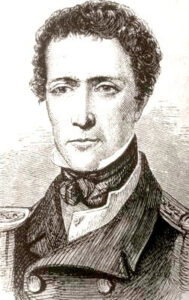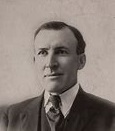
Several BBTI graduates that we must not identify serve in countries of the 10/40 window. Missionaries are most needed where they are least welcome, and we rejoice that they are declaring the Gospel in places controlled by atheists or religious fanatics. Because many of these countries have laws against proselytizing or even distributing Christian literature, missionaries must operate under the radar. We must be especially careful not to expose them as missionaries; our carelessness with social media or the internet could cause them to be expelled from their country or worse.
Brother C—— and his wife S—— were recently expelled from a large Muslim country. They are working and praying for visas to return. In the meantime, they are conducting Bible studies with their people by Zoom.
T—— and his wife C—— live in the Middle East and are currently helping individuals who are escaping from the Taliban. They are helping these desperate souls with food and of course, a Gospel witness. Their young son does not want the Taliban to be killed because he does not want them to go to hell.
P—— and L—— have worked very hard learning the language in their Communist Asian country. He was able to preach and teach over twenty times this last year, and L—— has also taught several lessons. C—— and K—— have worked in the same country for many years. C—— is busy teaching in a secular university, preaching in secret church services, and helping with a Bible translation project.
J—— and K—— work in a different Communist Asian country. They too have learned a difficult, tonal language. They have endured a severe lockdown, but they get out to visit people as much as possible without getting into trouble with government officials.
R—— reports that she is making good progress learning her new language. Her country is not closed, but she plans to work on a Bible translation project for a large people group in a neighboring Muslim country that is very unfriendly toward Christians. This means that R—— will need to learn two languages. We are praying for others to join this project in the days to come.
K—— and his wife Y—— have been in the states taking care of necessary family business, but they should be back in their country by now. Brother K—— is working hard to learn the language while Y—— already speaks it well. Their country is not closed to missionaries, but they hope to reach another nearby country that is very closed.
J—— and N—— desire to return to their field. They thought they had all the necessary paperwork together only to learn that the rules had changed, and they needed to show proof of the COVID vaccine along with their visa application. The next possible date to submit their visa request is in January.
C—— and B—— want to return to their Communist country in Southeast Asia to continue their language learning. Pray their new visas will be issued soon.
It seems to be the COVID restrictions that are hindering J—— and T—— from returning to their ministry. God has been using them there in a very special way, and the enemy does not like it!
S—— and M—— are doing unusually well raising their support, but the Communist country where they originally planned to work is completely closed. So instead, they are looking at Thailand. We will keep them unnamed because they might go to the Communist country in the future.
Winter 2021-22
 Allen Gardiner paced up and down the street, ashamed to go into the bookshop and ask for a Bible. He had thrown aside his religious upbringing at the young age of fourteen for the rowdy life of a sailor, but now he needed answers. The letter that arrived, telling of his godly mother’s prayer for him before her death, struck his heart with a desire to read the Book that he knew held life’s answers. Secreted with the newly purchased volume in the quiet of a Chinese temple, Allen Gardiner came to faith in Jesus Christ.
Allen Gardiner paced up and down the street, ashamed to go into the bookshop and ask for a Bible. He had thrown aside his religious upbringing at the young age of fourteen for the rowdy life of a sailor, but now he needed answers. The letter that arrived, telling of his godly mother’s prayer for him before her death, struck his heart with a desire to read the Book that he knew held life’s answers. Secreted with the newly purchased volume in the quiet of a Chinese temple, Allen Gardiner came to faith in Jesus Christ.

